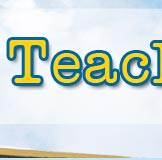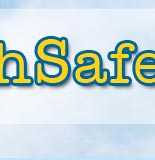About Us
The Contributors to TeachSafeSchools.org are committed to the mission of the Melissa Institute: to bring the results of research in violence prevention and treatment to the educators who are working diligently in our schools to ensure the safety and success of all students and faculty.
Who are our Contributors?
Contributors include members of the Melissa Institute Scientific Board and other experts.
 Donald Meichenbaum, Ph.D. Research Director of the Melissa Institute for Violence Prevention & Treatment, is the Editor in Chief for all content found on this website. Dr. Meichenbaum is Distinguished Professor Emeritus at the University of Waterloo, Ontario, Canada, and Research Director of the Melissa Institute. He is one of the founders of cognitive-behavior therapy. In a survey reported in the American Psychologist, he was voted "one of the ten most influential psychotherapists of the 20th century.” He has consulted extensively for schools, and he has co-authored (with Dr. Andy Biemiller) Nurturing IndependentLearners: Helping Students Take Charge of their Learning. He has also written Clinical Handbooks on Treatment of Individuals with Anger-control Problems and Aggressive Behavior as well as Treatment of Individuals with Post Traumatic Stress Disorder and Stress Inoculation Training. He has lectured and consulted internationally on school-related issues. Read an interview with Donald Meichenbaum. Donald Meichenbaum, Ph.D. Research Director of the Melissa Institute for Violence Prevention & Treatment, is the Editor in Chief for all content found on this website. Dr. Meichenbaum is Distinguished Professor Emeritus at the University of Waterloo, Ontario, Canada, and Research Director of the Melissa Institute. He is one of the founders of cognitive-behavior therapy. In a survey reported in the American Psychologist, he was voted "one of the ten most influential psychotherapists of the 20th century.” He has consulted extensively for schools, and he has co-authored (with Dr. Andy Biemiller) Nurturing IndependentLearners: Helping Students Take Charge of their Learning. He has also written Clinical Handbooks on Treatment of Individuals with Anger-control Problems and Aggressive Behavior as well as Treatment of Individuals with Post Traumatic Stress Disorder and Stress Inoculation Training. He has lectured and consulted internationally on school-related issues. Read an interview with Donald Meichenbaum.
Etiony Aldarondo, Ph.D., is Associate Professor in the Department of Educational and Psychological Studies Department at the University of Miami. He co-chairs the steering committee of the National Latino Alliance for the Elimination of Domestic Violence, and is a member of the National Advisory Board of the National Violence Against Women Prevention Research Center funded by the Center for Disease Control. Dr. Aldarondo is also a member of the Prevention's Batterer Intervention and Prevention Program's Evidence-Based Review Expert Panel.
 James Larson, Ph.D., is Professor of Psychology and Director of the School Psychology Program at the University of Wisconsin-Whitewater. Prior to that appointment, Dr. Larson was a school psychologist with the public schools in Milwaukee, Wisconsin. He was the lead psychologist with the Milwaukee Schools Violence Prevention Program. His principle research interests include the treatment of aggression in children and adolescents, school violence prevention, and training procedures in school psychology. He is author of Think First: AddressingAggressive Behavior in Secondary Schools. He is co-author (with John Lochman) of Helping Children Cope With Anger: A Cognitive-behavioral Intervention. James Larson, Ph.D., is Professor of Psychology and Director of the School Psychology Program at the University of Wisconsin-Whitewater. Prior to that appointment, Dr. Larson was a school psychologist with the public schools in Milwaukee, Wisconsin. He was the lead psychologist with the Milwaukee Schools Violence Prevention Program. His principle research interests include the treatment of aggression in children and adolescents, school violence prevention, and training procedures in school psychology. He is author of Think First: AddressingAggressive Behavior in Secondary Schools. He is co-author (with John Lochman) of Helping Children Cope With Anger: A Cognitive-behavioral Intervention.
Clifford O'Donnell, Ph.D., is Professor of Psychology at the University of Hawaii and Director of the Community Studies Program. He is an authority on childhood aggression and violence, and he has addressed the issue of gun violence and youth. Dr. O’Donnell has also developed culturally sensitive community programs for youth and their families.
Debra Pepler, Ph.D., is Professor of Psychology at York University, Toronto, Ontario, and the Director of the Judy LaMarsh Center for Research on Violence and Conflict Resolution. She is a leader in the area of the developmental correlates of childhood aggression, victimization/ bullying and an expert on school-based interventions. www.yorku.ca/lamarsh/articles www.prevnet.ca
 Isaac Prilleltensky, Ph.D., is Dean of the School of Education
at the University of Miami. Prior to that he was Director of the
Doctoral Program in Community Research and
Action at Peabody College of Vanderbilt University.
Isaac was born in Argentina and has studied and
worked in Israel, Canada, Australia and the United States.
He has lectured widely in South America, Europe, North
America, Australia and New Zealand. Isaac is concerned
with value-based ways of promoting personal, relational,
and collective well-being. He is the author, co-author
or co-editor of several books, including Community
Psychology: In Pursuit of Liberation and Well-Being,
Doing Psychology Critically, Critical Psychology,
Promoting Family Wellness and Preventing Child
Maltreatment, and The Morals and Politics of Psychology. He recently completed with his wife, Dr. Ora Prilleltensky,
a book entitled Promoting Well-Being: Linking Personal,
Organizational, and Community Change. Isaac Prilleltensky, Ph.D., is Dean of the School of Education
at the University of Miami. Prior to that he was Director of the
Doctoral Program in Community Research and
Action at Peabody College of Vanderbilt University.
Isaac was born in Argentina and has studied and
worked in Israel, Canada, Australia and the United States.
He has lectured widely in South America, Europe, North
America, Australia and New Zealand. Isaac is concerned
with value-based ways of promoting personal, relational,
and collective well-being. He is the author, co-author
or co-editor of several books, including Community
Psychology: In Pursuit of Liberation and Well-Being,
Doing Psychology Critically, Critical Psychology,
Promoting Family Wellness and Preventing Child
Maltreatment, and The Morals and Politics of Psychology. He recently completed with his wife, Dr. Ora Prilleltensky,
a book entitled Promoting Well-Being: Linking Personal,
Organizational, and Community Change.
Wendy K. Silverman, Ph.D., is a Professor of Psychology and Director of the Child and Family Psychosocial Research Center at Florida International University. She has authored/co-edited four books including Helping Children Cope with Disasters and Terrorism (with Dr. Annette La Greca). Dr. Silverman is a member of the scientific advisory board for Child and Adolescent Trauma Treatment in New York and Editor of the Journal of Clinical Child and Adolescent Psychology.
Dale Willows, Ph.D., is Professor in the Department of Human Development and Applied Psychology at the University of Toronto. She is also a registered psychologist in the Province of Ontario. She is an acknowledged expert in the teaching of reading and has published extensively. Dr. Willows has also served as a member of the National Reading Panel. http://reta.nmsu.edu/reading/willows/index.html
 Marleen Wong, LCSW, Ph.D., is the Director
of Crisis Counseling and Intervention Services
for the Los Angeles Unified School District. She
has developed school crisis teams, mental health
recovery programs, and training for school districts
and law enforcement personnel in the United Status,
Canada, and Asia and is frequently consulted by the
US DOE to assist with recovery for schools impacted
by violence and disaster. She collaborated on the
development and evaluation of the CBITS (Cognitive
Behavioral Intervention for Trauma in Schools), an
evidence-based program that uses skill-based, group
intervention to relieve symptoms of post-traumatic
stress disorder, depression, and general anxiety among
children exposed to trauma. Dr. Wong has served on
the Institute of Medicine Committee on Preparing for
the Psychological Consequences of Terrorism and the
IOMís Board on Neuroscience and Behavioral Health,
which is charged with assessing national priorities and
approaches to public health and medical practice, public
policy, research, education, and training. Marleen Wong, LCSW, Ph.D., is the Director
of Crisis Counseling and Intervention Services
for the Los Angeles Unified School District. She
has developed school crisis teams, mental health
recovery programs, and training for school districts
and law enforcement personnel in the United Status,
Canada, and Asia and is frequently consulted by the
US DOE to assist with recovery for schools impacted
by violence and disaster. She collaborated on the
development and evaluation of the CBITS (Cognitive
Behavioral Intervention for Trauma in Schools), an
evidence-based program that uses skill-based, group
intervention to relieve symptoms of post-traumatic
stress disorder, depression, and general anxiety among
children exposed to trauma. Dr. Wong has served on
the Institute of Medicine Committee on Preparing for
the Psychological Consequences of Terrorism and the
IOMís Board on Neuroscience and Behavioral Health,
which is charged with assessing national priorities and
approaches to public health and medical practice, public
policy, research, education, and training.
|








 Donald Meichenbaum, Ph.D. Research Director of the Melissa Institute for Violence Prevention & Treatment, is the Editor in Chief for all content found on this website. Dr. Meichenbaum is Distinguished Professor Emeritus at the University of Waterloo, Ontario, Canada, and Research Director of the Melissa Institute. He is one of the founders of cognitive-behavior therapy. In a survey reported in the American Psychologist, he was voted "one of the ten most influential psychotherapists of the 20th century.” He has consulted extensively for schools, and he has co-authored (with Dr. Andy Biemiller) Nurturing IndependentLearners: Helping Students Take Charge of their Learning. He has also written Clinical Handbooks on Treatment of Individuals with Anger-control Problems and Aggressive Behavior as well as Treatment of Individuals with Post Traumatic Stress Disorder and Stress Inoculation Training. He has lectured and consulted internationally on school-related issues. Read an
Donald Meichenbaum, Ph.D. Research Director of the Melissa Institute for Violence Prevention & Treatment, is the Editor in Chief for all content found on this website. Dr. Meichenbaum is Distinguished Professor Emeritus at the University of Waterloo, Ontario, Canada, and Research Director of the Melissa Institute. He is one of the founders of cognitive-behavior therapy. In a survey reported in the American Psychologist, he was voted "one of the ten most influential psychotherapists of the 20th century.” He has consulted extensively for schools, and he has co-authored (with Dr. Andy Biemiller) Nurturing IndependentLearners: Helping Students Take Charge of their Learning. He has also written Clinical Handbooks on Treatment of Individuals with Anger-control Problems and Aggressive Behavior as well as Treatment of Individuals with Post Traumatic Stress Disorder and Stress Inoculation Training. He has lectured and consulted internationally on school-related issues. Read an  James Larson, Ph.D., is Professor of Psychology and Director of the School Psychology Program at the University of Wisconsin-Whitewater. Prior to that appointment, Dr. Larson was a school psychologist with the public schools in Milwaukee, Wisconsin. He was the lead psychologist with the Milwaukee Schools Violence Prevention Program. His principle research interests include the treatment of aggression in children and adolescents, school violence prevention, and training procedures in school psychology. He is author of Think First: AddressingAggressive Behavior in Secondary Schools. He is co-author (with John Lochman) of Helping Children Cope With Anger: A Cognitive-behavioral Intervention.
James Larson, Ph.D., is Professor of Psychology and Director of the School Psychology Program at the University of Wisconsin-Whitewater. Prior to that appointment, Dr. Larson was a school psychologist with the public schools in Milwaukee, Wisconsin. He was the lead psychologist with the Milwaukee Schools Violence Prevention Program. His principle research interests include the treatment of aggression in children and adolescents, school violence prevention, and training procedures in school psychology. He is author of Think First: AddressingAggressive Behavior in Secondary Schools. He is co-author (with John Lochman) of Helping Children Cope With Anger: A Cognitive-behavioral Intervention. Isaac Prilleltensky, Ph.D., is Dean of the School of Education
at the University of Miami. Prior to that he was Director of the
Doctoral Program in Community Research and
Action at Peabody College of Vanderbilt University.
Isaac was born in Argentina and has studied and
worked in Israel, Canada, Australia and the United States.
He has lectured widely in South America, Europe, North
America, Australia and New Zealand. Isaac is concerned
with value-based ways of promoting personal, relational,
and collective well-being. He is the author, co-author
or co-editor of several books, including Community
Psychology: In Pursuit of Liberation and Well-Being,
Doing Psychology Critically, Critical Psychology,
Promoting Family Wellness and Preventing Child
Maltreatment, and The Morals and Politics of Psychology. He recently completed with his wife, Dr. Ora Prilleltensky,
a book entitled Promoting Well-Being: Linking Personal,
Organizational, and Community Change.
Isaac Prilleltensky, Ph.D., is Dean of the School of Education
at the University of Miami. Prior to that he was Director of the
Doctoral Program in Community Research and
Action at Peabody College of Vanderbilt University.
Isaac was born in Argentina and has studied and
worked in Israel, Canada, Australia and the United States.
He has lectured widely in South America, Europe, North
America, Australia and New Zealand. Isaac is concerned
with value-based ways of promoting personal, relational,
and collective well-being. He is the author, co-author
or co-editor of several books, including Community
Psychology: In Pursuit of Liberation and Well-Being,
Doing Psychology Critically, Critical Psychology,
Promoting Family Wellness and Preventing Child
Maltreatment, and The Morals and Politics of Psychology. He recently completed with his wife, Dr. Ora Prilleltensky,
a book entitled Promoting Well-Being: Linking Personal,
Organizational, and Community Change. Marleen Wong, LCSW, Ph.D., is the Director
of Crisis Counseling and Intervention Services
for the Los Angeles Unified School District. She
has developed school crisis teams, mental health
recovery programs, and training for school districts
and law enforcement personnel in the United Status,
Canada, and Asia and is frequently consulted by the
US DOE to assist with recovery for schools impacted
by violence and disaster. She collaborated on the
development and evaluation of the CBITS (Cognitive
Behavioral Intervention for Trauma in Schools), an
evidence-based program that uses skill-based, group
intervention to relieve symptoms of post-traumatic
stress disorder, depression, and general anxiety among
children exposed to trauma. Dr. Wong has served on
the Institute of Medicine Committee on Preparing for
the Psychological Consequences of Terrorism and the
IOMís Board on Neuroscience and Behavioral Health,
which is charged with assessing national priorities and
approaches to public health and medical practice, public
policy, research, education, and training.
Marleen Wong, LCSW, Ph.D., is the Director
of Crisis Counseling and Intervention Services
for the Los Angeles Unified School District. She
has developed school crisis teams, mental health
recovery programs, and training for school districts
and law enforcement personnel in the United Status,
Canada, and Asia and is frequently consulted by the
US DOE to assist with recovery for schools impacted
by violence and disaster. She collaborated on the
development and evaluation of the CBITS (Cognitive
Behavioral Intervention for Trauma in Schools), an
evidence-based program that uses skill-based, group
intervention to relieve symptoms of post-traumatic
stress disorder, depression, and general anxiety among
children exposed to trauma. Dr. Wong has served on
the Institute of Medicine Committee on Preparing for
the Psychological Consequences of Terrorism and the
IOMís Board on Neuroscience and Behavioral Health,
which is charged with assessing national priorities and
approaches to public health and medical practice, public
policy, research, education, and training.